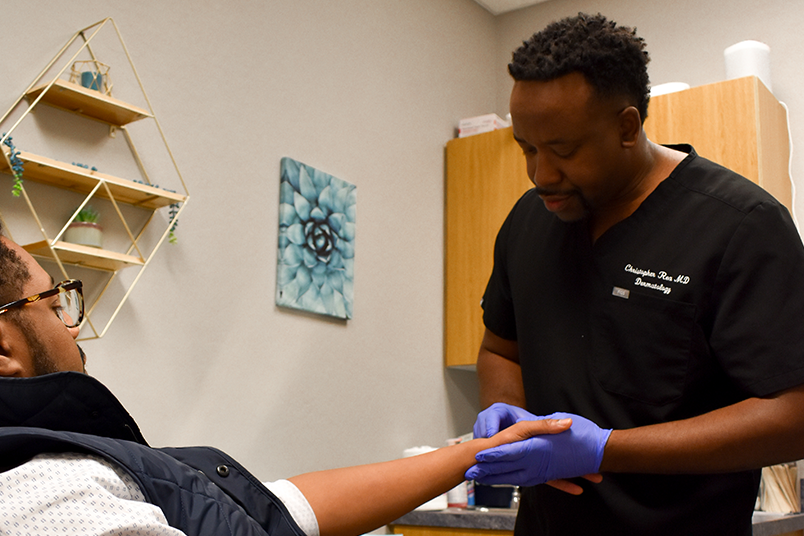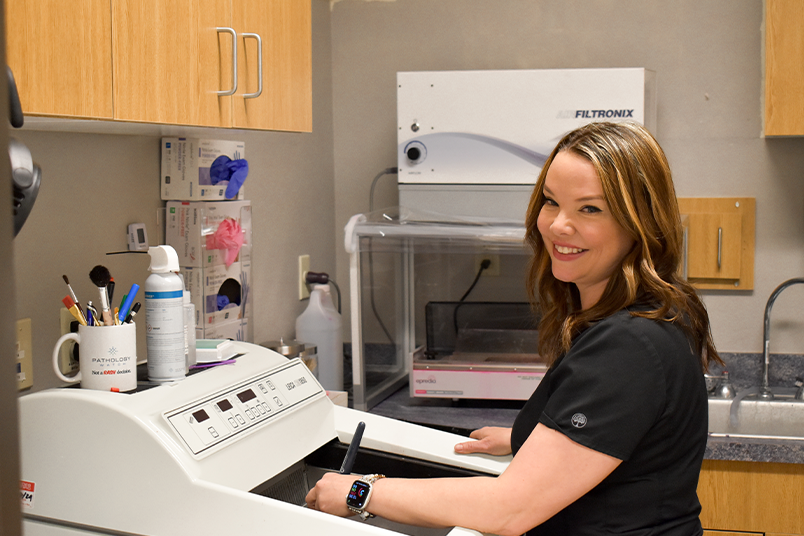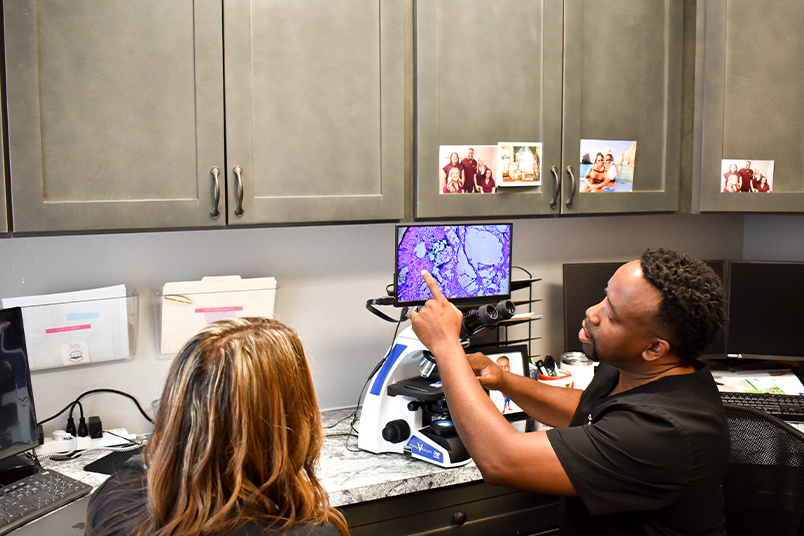MOHS Surgery
Home > MOHS Surgery
Other Services
Worried you might have need MOHS Surgery?
Enjoy the piece of mind that comes with getting your skin checked by a licensed professional.
What is Mohs surgery?
Skin cancer is one of the most common types of cancer in the United States, and it deserves serious treatment. At Peak Dermatology, our provider offer Mohs surgery to help effectively treat skin cancer.
Considered to be the most effective technique for treating skin cancer, Mohs surgery is a procedure in which layers of skin are removed one at a time and then examined underneath a microscope until the cancer is gone. This is why it is also known as “Mohs microscopic surgery”. It is done in stages, and is regarded for its ability to spare as much healthy tissue as possible. We pride ourselves, because we are able to remove the skin cancer one layer at a time until we can no longer find it under a microscope.



Preparing for Mohs surgery at our practice
When arriving to for Mohs surgery, patients should clear their entire day for it, because it can take a long time due to the analysis involved. The average time is four hours, but it’s smart to be prepared. Local anesthetic is used, so you are also welcome (and encouraged) to bring reading material, your iPad, water, snacks, or even a friend to keep you occupied, since you will be awake the entire time.
Be sure to follow all the guidelines that we provide you with prior to your surgery, including taking any medication that is required. We recommend Tylenol if you need pain medication, because Tylenol does not thin your blood. Please shower before the surgery, and don’t apply any type of cosmetics including lotion, makeup, or perfume. It’s also important that you wear comfortable clothing — particularly clothing that can be easily removed if it’s near the cancer.
Frequently Asked MOHS Surgery Questions
MOHS SURGERY
Mohs surgery is done in an operating room or office with a nearby lab so that the Mohs surgeon can conveniently examine the tissue once it has been removed. Layer of layer of tissue will be checked until the tests no longer detect any cancer.
The area to be treated will be cleansed, and a numbing agent will be administered via injection to help with any discomfort. Your Mohs surgeon will remove the visible tumor along with a thin layer of surrounding tissue with a scalpel, and will place a temporary bandage.
The excised tissue will be taken to the lab, where it will be prepared and put on slides by a technician and examined under a microscope. If there is evidence of cancer, another layer of tissue will be taken from the area. This process ensures that only cancerous tissue is removed during the procedure, minimizing the loss of healthy tissue. These steps are repeated until all tissue is free of cancer. While there are always exceptions to the rule, most tumors require 1 to 3 stages for complete removal. Come see our skin cancer specialist to learn more about Moh’s surgery.
Although Mohs surgery has an extremely high cure rate, we will want to see you for regular follow-ups to ensure you’re remaining cancer-free. These follow-ups are typically scheduled for twice a year, but you may require more depending on how aggressive your cancer was. If you have further questions about the cancer returning, our skin cancer specialist will be more than happy to speak with you.
Although Mohs surgery has an extremely high cure rate, we will want to see you for regular follow-ups to ensure you’re remaining cancer-free. These follow-ups are typically scheduled for twice a year, but you may require more depending on how aggressive your cancer was. If you have further questions about the cancer returning, our skin cancer specialist will be more than happy to speak with you.
You’ll need to avoid strenuous physical activity for 48 hours, and in some cases, 1 to 2 weeks. Complete healing of the scar takes place over 3 to 12 months. During the first few months, you may notice that the treated site feels swollen or lumpy, and may appear red.
- Have skin cancer that came back after another treatment
- Have skin cancer that is located on a part of your body where it’s important to keep as much healthy tissue as possible
- Have skin cancer that is big, or grows fast
- Has skin cancer with uneven edges
- Are a non-smoker, or are willing to quit before surgery
If you’re interested in undergoing Mohs surgery, put yourself in the skilled hands of our Mohs surgeon, Dr Rex. We are a patient-centric practice delivering the very best in surgery from our skin cancer specialists. We keep your safety and wellbeing in mind at all times, and you will feel completely welcome from the moment you enter our door to your very last follow-up appointment. To learn more or schedule a consultation, please call or contact us online. We look forward to hearing from you.

